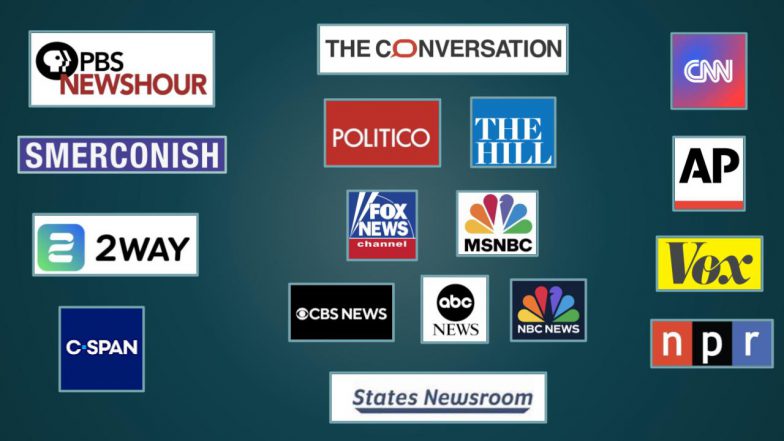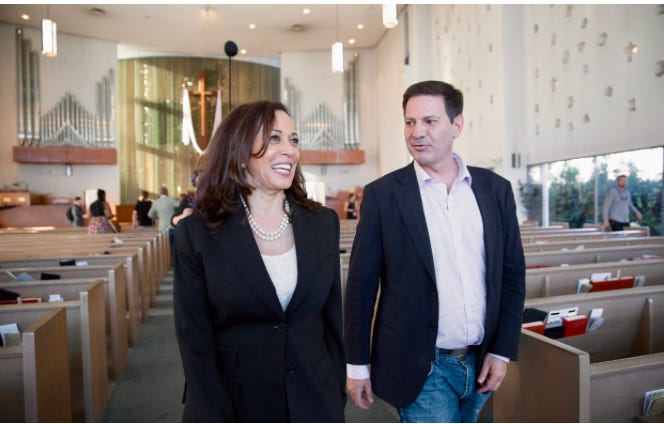Summary
This US onAir ARTICLE post aggregates the best, most recent publicly accessible articles, opinion pieces, analyses, and explainers.
Aggregators such as States Newsroom and The Conversation provide Creative Commons content that nonprofits and individuals can re-post with attribution. We have also included each day a link to Smernish.com’s daily poll.
Other content aggregators such as Smernish.com provide daily links to copyrighted articles, some freely viewable with ads and others requiring a subscription. Other similar aggregators and content creators that US onAir curators track include: NPR News, Associated Press, Reuters, CNN, Vox, Politico, The Hill, and Axios.
To see previous weeks’ archive of featured news items, select the site nav icon (three horizontal lines at upper left) then “News”.
If you like to Become an onAir member and add your own news items and participate in discussions, go here. It’s free!
OnAir Post: July 29 to August 4, 2024 News
News
2 WAY, July 21, 2024 – 4:00 pm (ET)
https://www.youtube.com/live/40sV6QI2vs8
Poll question
Selection of Smerconish daily headlines
Michael Smerconish discusses July 30th Headlines (YouTube) from the Smerconish.com Newsletter.
July 30- Arizona: nonpresidential primary election
August 2024
Aug 01- Tennessee: nonpresidential primary election
Aug 06- Nonpresidential primaries_ States holding elections include: Kansas, Michigan, Missouri and Washington.
Aug 10- Hawaii: nonpresidential primary election
Aug 13– Nonpresidential primaries
States holding elections include: Connecticut, Minnesota, Vermont and Wisconsin.
August 19-22: Democratic National Convention
The Democratic National Convention will be held in Chicago from August 19-22, 2024.
The vice president’s shaky 2020 presidential run tarnished her image. She’ll need to sharpen her message and clean up her org chart this time.
Kamala Harris launched her first presidential campaign five years ago to great expectations. She had a growing profile as a no-nonsense interrogator in the Senate, heavyweight support from Hollywood to Wall Street and the raw talent of a once-in-a-generation leader.
Then she crumbled.
Harris’ admirers — not to mention aides and members of her inner circle — detest the mere thought of that painful time. She’s been vice president for four years, they say, standing in for President Joe Biden around the world and becoming the party’s preeminent voice on abortion rights. She’s confident, they contend, and battle-tested. The Kamala Harris of 2024 is light-years better than the Harris of 2019.
Poll question
Does labeling Republicans as “weird” help or hurt Kamala Harris’ campaign?
Selection of Smerconish daily headlines
Michael Smerconish discusses July 30th Headlines (YouTube) from the Smerconish.com Newsletter.
Senators Demand Shooting Answers, AP
Biden Announces SCOTUS Plan, USA Today
“Weird” Is Working, Salon
Venezuelan Protests Grow, The Guardian
SCOTUS Leak Reveals Abortion Split, CNN
When acting Secret Service Director Ronald Rowe Jr. visited the site of the campaign rally where a gunman attempted to assassinate former President Donald Trump, he went up to the roof, lying flat on his stomach, to evaluate the shooter’s line of sight that mid-July day.
“What I saw made me ashamed,” Rowe told U.S. senators Tuesday. “As a career law enforcement officer and a 25-year-veteran with the Secret Service, I cannot defend why that roof was not better secured.”
Rowe recounted his trip to Butler, Pennsylvania, which he said took place after being named acting director July 23, at a joint hearing of the Senate Judiciary and Homeland Security and Governmental Affairs committees examining the security failures that led to the assassination attempt. Deputy FBI Director Paul Abbate also testified.
Bad electoral science can cause lasting harm to democracy, undermining public confidence in the voting process.
That’s the main finding from our study published in the peer-reviewed journal Public Opinion Quarterly in July 2024, looking at the impact of academic claims of electoral fraud in the 2020 South Korean general election.
The ruling Democratic Party won that vote by a larger margin than expected, leading supporters of the opposition United Future Party to allege the rigging of early voting results.
But what started as a typical post-election dispute took a turn when one U.S.-based election fraud researcher analyzed the data and concluded that close to 10% of votes for the Democratic Party were fraudulent. That finding spread quickly across South Korean media, appearing in more than 300 news stories; meanwhile, the scholar conducted prime-time TV interviews about the alleged fraud.
What wasn’t immediately clear to the public – although South Korean political scientists and statisticians later explained – was that the analysis was based on a misunderstanding of the election data and the South Korean voting system.
Although the electoral science research was flawed, the damage was done: The erroneous claims of fraud severely eroded public confidence in the electoral process in South Korea. As a direct consequence, the National Election Commission was compelled to revert to costly hand counting of votes in the subsequent general election in order to avoid any accusations of vote rigging.
And our study shows that the impact is larger than one might expect.
In an experiment, we randomly varied information given to 1,750 South Korean voting-eligible adults a few months after the 2020 election. A control group was given no information about foreign academic research into electoral fraud, while others were given academic research suggesting either a high chance or a slim chance of fraud.
Those handed research alleging a high chance of fraud were 12 percentage points more likely to believe that fraud actually occurred compared with those not exposed to such research. This equates to a jump of 52% in the likelihood that someone would believe that fraud occurred.
Respondents shown academic research alleging a high risk of fraud were also 65% more likely to click a link demanding an election fraud investigation, we found.
These effects were concentrated among supporters of the losing party in the 2020 election.
Why it matters
As political polarization deepens across advanced democracies, disputes over election fraud allegations have become commonplace.
And analysis by academic researchers and other experts into alleged fraud can have substantial influence, as the controversy surrounding American economist John Lott’s fraud claims relating to the 2020 U.S. presidential election has shown.
Our study underscores how academic research can significantly shape public perceptions of election integrity. The findings highlight how voters’ responses align with preexisting beliefs – losing party supporters found fraud claims more credible, while winning party supporters showed little change.
Crucially, our findings also reveal how publicizing flawed academic research on election fraud can exacerbate political polarization and undermine democracy itself.
Bad research can lead to widespread mistrust in electoral processes, eroding foundational belief in democratic institutions and deepening political divisions.
What still isn’t known
Our research looked only at South Korea. As one of the most stable democracies in Asia, the country shares similarities with other advanced democracies. But some of our findings may not be applicable to other countries’ elections.
Specifically, where elections have been fairly administered but polarization is high, false information alleging fraud is more likely to widen the gap in perception between supporters and opponents of the winning party. Conversely, in countries plagued by actual election fraud, such information could mobilize opposition against the offending parties, increasing election monitoring and fostering democracy.
And while media played a critical amplifying role in spreading the flawed analysis to the South Korean public, our study did not look at the extent to which traditional media versus social media contributed. We suspect flawed research can spread more easily via social media, where it faces fewer gatekeepers and can be shared by partisans indiscriminately.
What’s next
Our findings reveal the danger posed when flawed research influences public opinion.
Moving forward, we aim to investigate strategies to combat the impact of such misleading findings on public opinion. Scientists have long balanced maintaining objectivity and rigor with communicating findings that can shape minds.
As polarized politics increasingly demands experts weigh in based on scientific evidence, the academic community must determine how to better inform the public while preventing flawed research from undermining trust in democratic foundations. Upholding rigorous standards while clearly communicating truth will be key.
It happened in Caracas on June 9, 2016, when I was there to cover a series of violent protests that had broken out in Venezuela.
That sunny day, as our CNN team was walking towards the building that houses the National Assembly for interviews, we noticed a group of men heading the same way from the opposite side of the street.
“Hurry up!,” CNN en español’s correspondent in Caracas Osmary Hernández said. “I think the colectivos are up the street.” We all picked up our pace and breathed a sigh of relief when we made it to the building. Colectivos are armed groups that function like a street gang, but are closely affiliated with the socialist government and often do their dirty work.
Poll question
White women backed Trump in 2016 (+2%) and 2020 (+7%) – will they in 2024?
Selection of Smerconish daily headlines
Michael Smerconish discusses July 29th Headlines (YouTube) from the Smerconish.com Newsletter.
Poll: Harris Gains in Favorability, ABC News
Worry About All-Out Regional War, Al Jazeera
More Say No to Parenthood, USA Today
Both Parties Claim Venezuela Victory, BBC
PBS NewsHour, – July 28, 2024 (07:33)
Just 100 days out from Election Day, the U.S. political landscape is drastically different than it was a little more than a week ago. The effects of the shakeup on the Democratic presidential ticket are being felt in the battle for the House and Senate and the fight over big issues on the ballot in many states. Amy Walter of the Cook Political Report with Amy Walter joins John Yang to discuss.
U.S. House Speaker Mike Johnson and Democratic Leader Hakeem Jeffries on Monday announced the 13 lawmakers who will make up the bipartisan task force investigating the attempted assassination of Donald Trump.
“We have the utmost confidence in this bipartisan group of steady, highly qualified and capable Members of Congress to move quickly to find the facts, ensure accountability and help make certain such failures never happen again,” the two wrote in a joint statement.
Johnson said last week the panel will release its final report by Dec. 13, though he expected interim reports along the way. The House voted 416-0 on July 24 to establish the panel.
The position aligns with President Joe Biden but clashes with some abortion-rights activists championing her White House bid.
Kamala Harris jumped into the presidential race with a broad pledge to “restore reproductive freedom.” The Harris campaign specified Monday that she’s calling for restoring Roe v. Wade.
While many abortion-rights groups are championing her bid for the White House, some activists are frustrated with her position on the issue and plan to keep pushing to go further than President Joe Biden.
The Harris campaign told POLITICO the stance the vice president took in a September interview with “Face the Nation” hasn’t changed — support for restoring Roe, which protected abortion until the point of fetal viability, around 22 weeks of pregnancy.
Police officers in Texas, senior citizens at a nursing home in Pennsylvania and people who had registered to vote at a Marine base in California.
They are among the thousands of voters whose right to cast a ballot has been needlessly challenged ahead of this November’s election by activists — many of whom have been inspired by conspiracy theories — seeking to prevent voter fraud.
“My simple right as a voter is being attacked,” said Daniel Moss, a university administrator from Denton County, Texas, whose registration was challenged by one of the activists even though he has lived in the county and voted there for about two decades. “It’s kind of un-American to do that.”
Election officials across the country have been inundated with dubious complaints about inaccurate voter rolls, which have wasted government resources and sapped taxpayer money spent reviewing lists of registered voters that officials say are already carefully maintained, a CNN investigation has found.
Republican vice presidential nominee JD Vance served in the U.S. Marine Corps, and he’s the first veteran of Iraq or Afghanistan to appear on a presidential ballot.
But Vance isn’t a hawk; in fact, he now leads a contingent of war veterans in the Republican Party who oppose U.S. military intervention abroad.
“I served my country honorably and I saw when I went to Iraq that I had been lied to,” Vance said on the Senate floor in April after the chamber passed $61 billion of new aid for Ukraine.
In their opening wave of attacks on the Democrats’ likely presidential nominee, some Republicans are homing in on Vice President Kamala Harris’s race and gender — despite certain party leaders’ pleas for them to steer clear.
Members of the religious right have dubbed her a “jezebel,” while other conservative activists suggested that she’s slept her way to the top by citing past romantic relationships she’s had. GOP commentators have also echoed many of the same “birtherism” attacks that were once used against former President Barack Obama, falsely claiming that her candidacy isn’t viable because her parents were Jamaican and Indian immigrants. (Harris is a US citizen who was born in California.) And they’ve tapped into common GOP talking points about diversity, equity, and inclusion (DEI), implying that Harris isn’t up for the job and was selected for VP solely because of her identity.
“The media propped up this president, lied to the American people for three years, and then dumped him for our DEI vice president,” Rep. Tim Burchett (R-TN) said in a post on X. (Burchett has since said he wishes he hadn’t said this, while adding that it’s the “truth.”)



